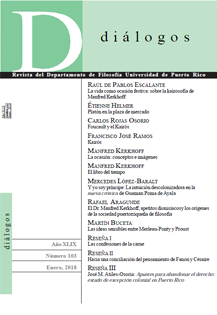Abstract
The present paper claims that Spinoza‘s thought is crucial for a radical criticism of the different aspects in the formative apparatus of the Netherlands in the XVII th century. Spinoza can be considered as a 'master of suspicion‘ against those educators who instead of forming their students de-form them. His alternative paideutic project is not compatible with the principles of pedagogy understood as a science. This is because Spinoza‘s notion of form is not identifiable with a universal, but is always inseparable from the embodied singularity of the mode. Standard readings interpret Spinoza as an enemy of authoritarian education or as a philosopher who rejects the sad passions. But these readings are partial as they do not grasp the broader pedagogical design implicit in Spinoza‘s work. This design puts forth an original conception of the body as a singularity; it requires continuous work on the mnestic connections and has evident political implications that are well expressed in the concept of accommodatio.Downloads
Download data is not yet available.

